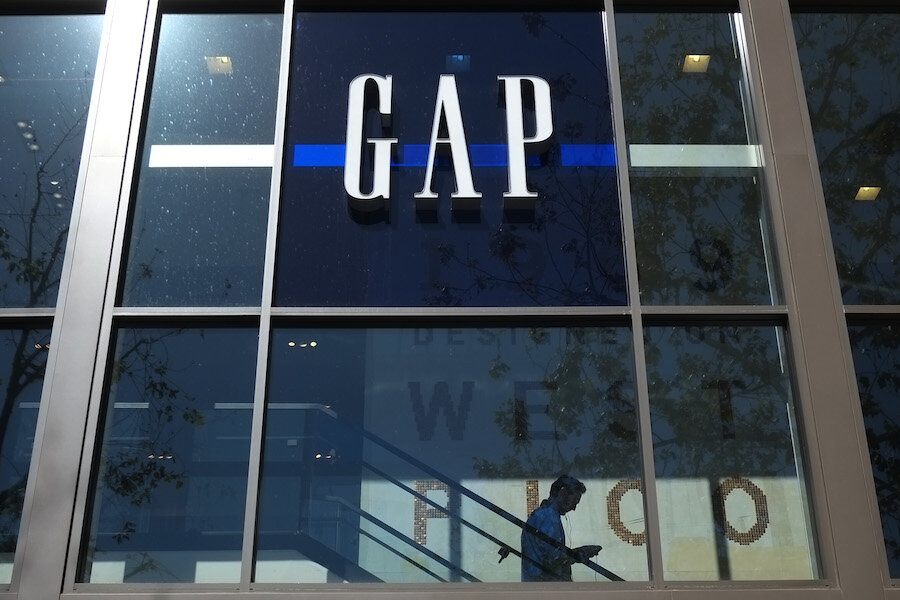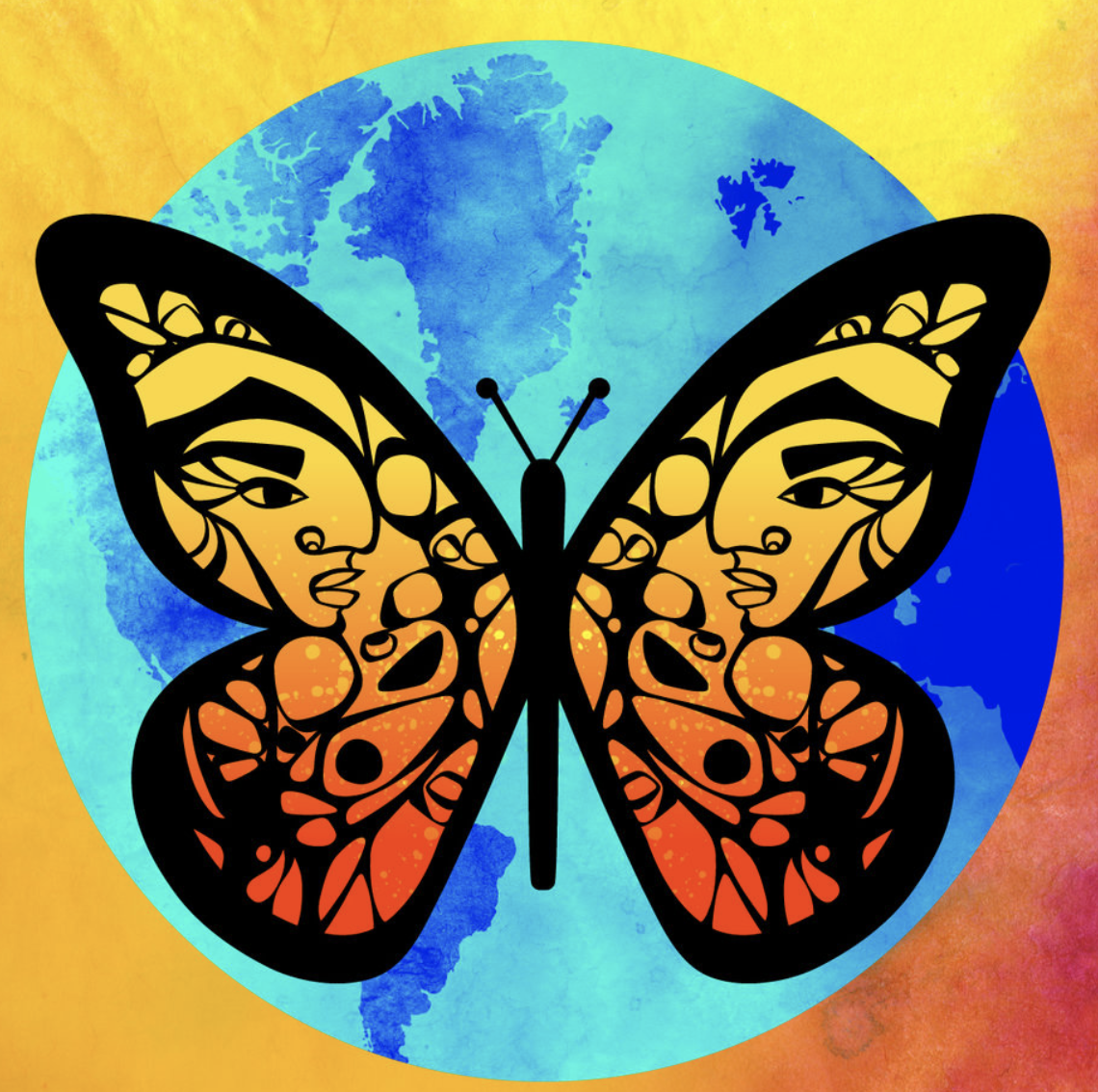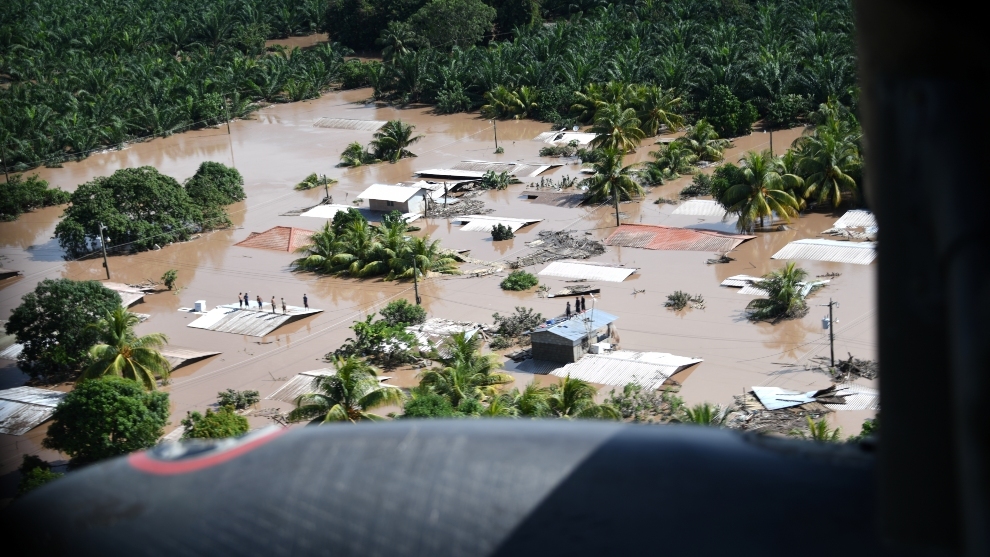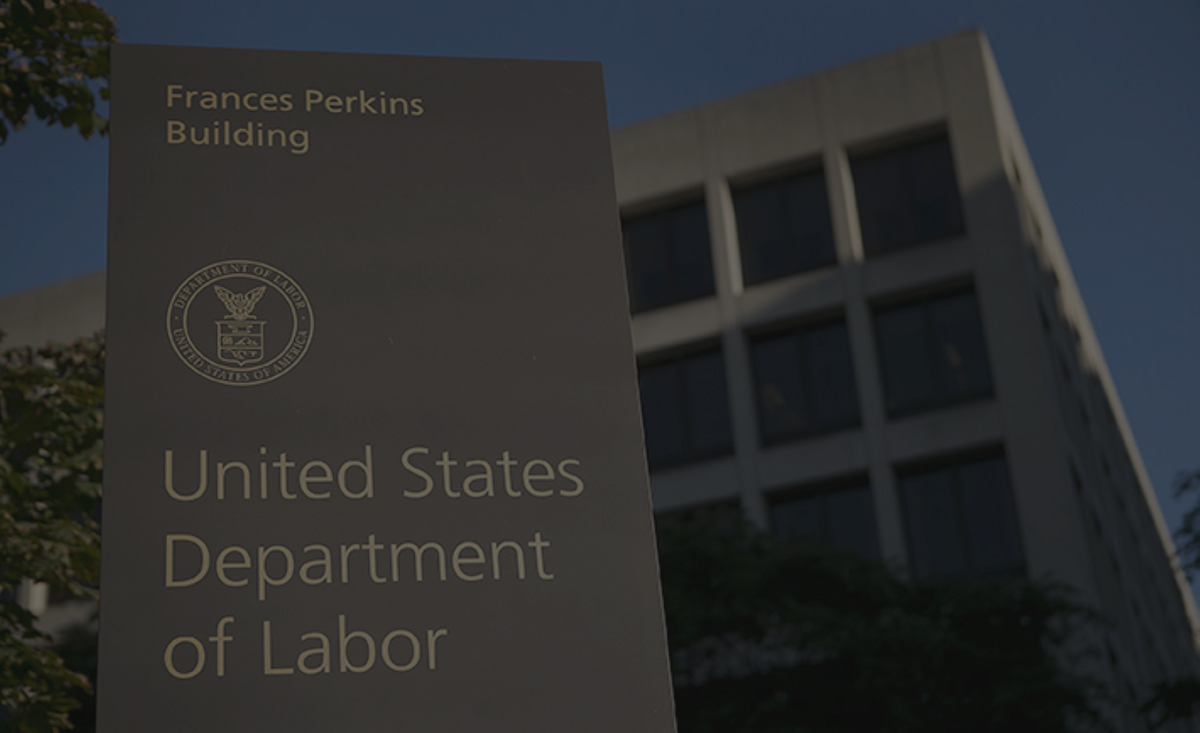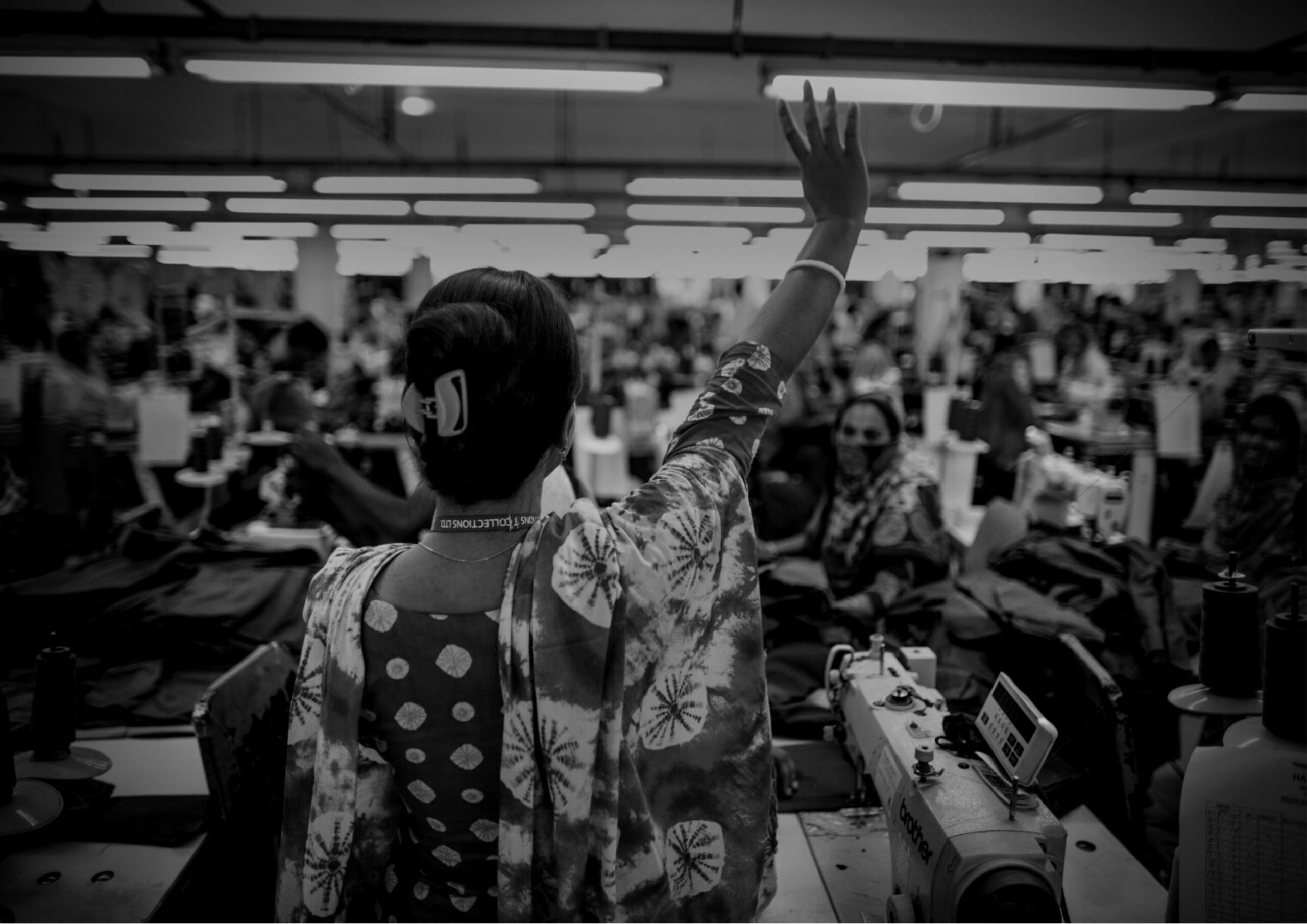
Author: nazly
05 Feb Negotiations Stalled as 90+ International Labor Groups Call on H&M, Gap, PVH and their Supplier Eastman Exports to Sign Binding Agreement to End Gender-Based Violence
For Immediate Release: February 5th, 2021
Contact: nazly@globallaborjustice.org
More than ninety unions, women’s organizations, and other allies including The AFL-CIO, The Cambodian Alliance of Trade Unions (CATU), Workers United – SEIU, the Global Alliance Against Traffic in Women (GAATW), and All India Democratic Women’s Association (AIDWA) join Tamil Nadu Textile and Common Labour Union (TTCU)’s call on garment brands to negotiate a binding agreement to end systemic gender-based violence, which was exposed after the rape and murder of a worker in the supply chain of global brands earlier this year.
As awareness and international outcry grows over the murder of TTCU member and Eastman Exports garment worker Jeyasre Kathiravel, further negotiations have stalled. Retaliatory and exaggerated criminal charges instigated by Eastman exports against 18 community members from Jeyasre’s village related to an incident where glass was broken on an Eastman Exports vehicle have not been resolved. Those who have been charged include family members and factory employees. Eastman has used these charges as leverage to pressure the family and TTCU to withdraw from negotiations on fair compensation and an enforceable brand agreement on GBVH issues.
After coercive attempts to pressure the family and TTCU to withdraw from negotiations that were exposed, Eastman Exports and international brands “acknowledge the importance of adequate, negotiated compensation without pressure on the family.” Yet the court hearing to withdraw these charges did not take place and community members remain in limbo.
“We are deeply disappointed that Eastman has not yet resolved these charges against community members so that we can move forward with a fair negotiation,” says Thivya Rakini, State President of TTCU, “Eastman pressed for exaggerated charges and must now take responsibility for ensuring the cases are closed.”
Jeyasre was a 21-year old TTCU member and garment worker who was raped and murdered by her supervisor in early January after months of ongoing and escalating sexual harassment in the factory where she worked. Since her tragic death, Jeyasre’s family has faced intense pressure and violent threats from management designed to force them to accept a minimal financial settlement and no liability for the company while Eastman Exports refuses the family’s request for TTCU leaders to be present at the settlement negotiations.
In light of this, more than 90 trade unions and allied groups from around the world have come together to support TTCU’s demand for fair compensation for the family and protection for all other workers through an enforceable and binding agreement with H&M, Gap, PVH, and their supplier, Eastman Exports, to end the supply chain model relying on systemic gender-based violence. This agreement would include future monitoring, remediation and prevention of gender-based violence and barriers to freedom of association, mutually agreed terms for an independent investigation, and family compensation using established benchmarks for apparel workers.
“Women-led trade unions like TTCU are standing up against gender-based violence and harassment where voluntary initiatives and management-controlled complaint mechanisms have failed. In garment supply chains where women are the vast majority of the workforce, when women-led trade unions speak up against GBVH, suppliers and brands must listen. We call for a binding agreement with TTCU to end GBVH at Eastman Exports,” says Yang Sophorn, President, The Cambodian Alliance of Trade Unions (CATU), Asia Floor Wage Alliance (AFWA) Women’s Leadership Committee (WLC) Member
“Gender-based violence and harassment in the workplace cannot be prevented or addressed without freedom of association. Binding and enforceable agreements involving trade unions, women’s rights organizations, the supplier and brands are key to addressing the root causes of gender-based violence and harassment in the garment industry. Brands and their supplier Eastman Exports must negotiate an enforceable binding agreement with Tamil Nadu Textile and Common Labour Union (TTCU) to ensure that the safety, welfare and rights of women workers at Eastman Exports are protected and strengthened,” says Mariam Dhawale, General Secretary, All India Democratic Women’s Association (AIDWA)
“A recent agreement by major brands and their Lesotho supplier with unions and women’s organizations to combat gender-based violence shows the way to deal with this issue. We call upon the brands sourcing from Eastman Exports to sit down with their supplier and the workers’ representatives to reach a similar agreement,“ says Jeffery Hermanson, of Workers United – Service Employees International Union (SEIU)
“After decades of various voluntary initiatives of brands, working conditions, freedom of association and wages in the garment industry remain stagnant and the industry is marred with endemic human rights violations, including gender-based violence. We stand in solidarity with TTCU as they demand a legally binding enforceable agreement with brands and their supplier Eastman Exports to end systemic gender-based violence,” says Bandana Pattanaik, International Coordinator of Global Alliance Against Traffic in Women (GAATW)
The letter calls on H&M, Gap, and PVH to move beyond ineffective corporate social responsibility programs and audits. AFWA, GLJ-ILRF, and partners released evidence-based reports detailing a pattern of rampant gender-based violence across H&M and Gap supply chains and seeking structural reforms, including in India at H&M and Gap in 2018. The findings have yet to result in a sufficient response from these and other brands.
TTCU continues to organize global support and solidarity from around the world for Jeyasre Kathiravel and her family and will be launching a global vigil for supply chain accountability and justice for women garment workers.
##############
TTCU-solidarity-letter-HM-Feb.5.2021 TTCU-solidarity-letter-Gap-Inc.-Feb.5.2021 TTCU-solidarity-letter-PVH-Feb.5.202101 Feb Women’s Union Demands Binding Agreement from H&M After Supplier Sends Mob and Threatens Family of Murdered Garment Worker in India
For Immediate Release: February 1st, 2021
Contact: nazly@globallaborjustice.org
Tamil Nadu Textile and Common Labour Union (TTCU) calls on garment brands to negotiate a binding agreement to end systemic gender-based violence, with plans to organize a global vigil to demand accountability from the top of the supply chain.
Over the weekend, Eastman Exports Global, one of the largest garment manufacturing companies in India that supply to brands like H&M, Gap, and PVH, sent a mob of 50 men to threaten and coerce the family of Jayasre Kathiravel, a 20-year old H&M garment worker who was murdered by her supervisor in early January after months of ongoing sexual harassment in the factory where she worked.
Led by Eastman Exports officials, 50 men invaded the family home of murdered worker and TTCU member Jeyasre to coerce her mother into sign documents releasing the company from responsibility in her daughter’s case of gender-based violence. Facing late-night intimidation in the dark with no electricity, Mrs. Kathiravel signed the documents under duress. Mrs. Kathiravel, accompanied at the time by 10 women union leaders, also fainted due to the aggressive action and was rushed to the hospital.
This incident marks a further escalation of gender-based violence and harassment at Eastman’s Natchi Apparels unit. The murder of Jayasre Kathrivel has exposed extreme and widespread conditions of gender-based violence and harassment in the factory. Jeyasre was found dead on January 5, after being reported missing on January 1. Before her death, Jeyasre told friends and coworkers that her supervisor, Thangadurai, had been sexually harassing her in the factory for months. Several other women workers have also come forward to say that Thangadurai has a record of sexually harassing women in the factory.
Thivya Rakini, State President of TTCU says, “The companies involved have put Jeyasre’s family and our leaders in further danger by their inaction. Our union and women workers are doing our part to report on the dire situation in Eastman Exports despite the serious risks to our security and livelihood. It is time for H&M and other brands to do their part.”
TTCU continues to demand a sit down with H&M and other brands and Eastman Exports Global, who have failed to protect women workers, to negotiate an enforceable agreement that covers monitoring, remediation, and prevention of gender-based violence and barriers to freedom of association in Eastman Apparel. This agreement should also include mutually agreed terms for an independent investigation, as well as ensure fair compensation and a fair process of negotiation with the family, and the protection of witnesses and victims who are being threatened into silence.
“Eastman Exports’ Natchi unit has repeatedly refused to engage TTCU on multiple reports of gender-based violence and harassment, and has chosen to maintain an internal complaints committee focused on repressing rather than exposing serious violations”, says Anannya Bhattacharjee, International Coordinator of Asia Floor Wage Alliance (AFWA), a regional organization that has been working with TTCU on the case. “This case shows the lengths to which corporations profiting from global supply chains will go to avoid responsibility. But in the end, women workers will stand up and fight back, and women around the world must stand with them for real solutions.”
H&M has been put on notice about the rampant gender-based violence in its global production supply chain including in India since 2018. That year, AFWA, GLJ-ILRF and partners released “Gender-Based Violence in H&M’s Supply Chain”, an evidence-based report detailing a pattern of rampant gender-based violence across H&M’s supply chain and seeking structural reforms. However, these findings have yet to result in any significant response from the brand.
“Fashion brands are hiding behind so-called sustainability programs when they need binding agreements with organizations representing women workers to make sure they can defend their rights at work without retaliation. Brands should not be able to avoid responsibility for sexual harassment and violence by crossing borders, says Jennifer (JJ) Rosenbaum, Executive Director of Global Labor Justice – International Labor Rights Forum, an international labor rights organization supporting the case.
In the wake of the escalation against the family, TTCU and its members demand that brands that source from Eastman agree to an enforceable binding agreement to end the supply chain model relying on systemic gender-based violence. TTCU is organizing global support and solidarity from women around the world for Jeyasre Kathiravel and her family and will be launching a global vigil for supply chain accountability and justice for women garment workers.
##############
The Tamil Nadu Textile and Common Labour Union (TTCU), is a registered, independent, women-led trade union, founded in 2013 that represents around 11,000 workers in Tamil Nadu. Eighty percent of TTCU’s members work in the textile and garment industry. TTCU works across the major garment hubs of Tamil Nadu including Coimbatore, Dindigul, Erode and Tirupur.
22 Nov First Annual Corridors of Justice for Labor Migration in the Americas Summit
The first annual Summit of the Corridors of Justice for Labor Migration in the Americas took place this past Tuesday and Wednesday, bringing together leaders from across the fields of labor, migration, and human rights. The Summit represented the perspectives from over 10 countries, including El Salvador, Mexico, Costa Rica, Chile, Colombia, Guatemala, the United States, Canada, Nicaragua, Honduras, and Spain. Prior to the pandemic, the Summit was intended to be an in-person gathering in April with the objective of understanding the experiences of workers, academics, labor rights advocates, union leaders, and civil society so as to promote a unified front against migrant worker injustices. The online forum allowed for more people from around the world to get involved – over 6,000 people were reached through radio and social media channels. “Today we’re beginning to build worker power across migration corridors and growing our strength to transform migration policy and confront corporations that take advantage of immigration laws to exploit workers’ labor,” said JJ Rosenbaum Executive director of GLJ-ILRF.
“All these corridors are full of hope – but we cannot forget that these corridors are also so full of abuses, violations, extortions and kidnapping,” said Pablo Alvarado, Co-Executive Director of the National Day Laborers Organizing Network (NDLON).
Alongside GLJ-ILRF, the coordinating organizations included El Salvador’s Centro de Integración para Migrantes Trabajadoras y Trabajadores (CIMITRA); the US-based National Day Laborer Organizing Network (NDLON); El Salvador’s Alianza de Salvadoreños Retornados (ALSARE); Costa Rica’s Centro de Derechos Laborales Sin Fronteras (CDL); the US’ National TPS Alliance Fundación Avina; Guatemala’s Asociación de Guatemaltecos Unidos por Nuestros Derechos (AGUND); Mexico’s Proyecto de Derechos Económicos, Sociales y Culturales (ProDESC); Movimiento Acción Migrante (MAM) of Chile; and Canada’s Red de Apoyo a Trabajadoras Y Trabajadores Agrícolas de Quebec (RATTMAQ). Many other organizations partook in the Summit.
The two day event consisted of five panels, each featuring prominent labor rights leaders from across the Americas and Europe. While day one centered on activism, action, and reform initiated by workers and advocates, day two dug into the risks and vulnerabilities faced across migration corridors.
The first panel of Summit focused on Migrant Worker Rights and How They Organize, primarily centered on activism in Mexico, Guatemala, Costa Rica, and El Salvador, and was moderated by Liduvina Magarin, from Centro de Integración para Migrantes Trabajadoras y Trabajadores (CIMITR) in El Salvador. Olivia Guzmán of Mexico’s Coalición de Trabajadoras y Trabajadores Migrantes Temporales Sinaloenses described the Coalition’s work establishing a worker center for pre-departure migrant workers heading to work in the US and Canada to promote just recruitment and hold US companies accountable. From the Guatemalan perspective, José Sicajau of Asociación de Guatemaltecos Unidos por Nuestros Derechos – (AGUND) depicted the experiences of migrant workers in Canada, highlighting how the Canadian government is not doing enough to protect workers rights and the advocacy efforts the group has pursued in both Canada and Guatemala. Touching on similar themes, Emanuel Delva of Centro de Derechos Laborales Sin Fronteras (CDL) in Costa Rica highlighted the importance of focusing on worker rights not only for those migrating to the US, but for those workers within Costa Rica. Furthermore, Juan Toledo of Alianza de Salvadoreños Retornados (ALSARE) discussed the importance of providing support to those who are deported.
The second panel, Academia and Participatory Action Research on Labor Migration, featured Maribel Torres and Yesenia Mata of La Colmena and María Figueroa of the Worker Institute at Cornell University. The moderator, Amparo Marroquín of Universidad Centroamericana in El Salvador, asked questions regarding the methods that researchers use, the impact of the coronavirus, and lessons that have been learned. The panelists discussed both the difficulty that labor migrants faced during the pandemic and their own difficulties collecting data. Earlier this year, the panelists authored a report about the Latinx Immigrant Workforce’s contribution to Staten Island’s economy before and after the pandemic. A major takeaway that María Figueroa shared was that Staten Island and La Colmena is a microcosm of the US and that future research should explore the contributions of the Latinx community and the organizations that support them.
In the final panel of day one, Viridiana Vidal of NDLON moderated a discussion on Popular Education, New Narratives and Communications, which underscored the importance of using alternative types of media to present valuable information to migrant workers and immigrant families. Manuel Vicente of Radio Jornalera, a US-based radio station, expressed how since the station started up in May 2019, it has provided people with a platform and a structure to communicate essential information to communities not always targeted by the mainstream media. Lucila Rodríguez of Fundación Por Causa in Spain discussed how narratives of migration have been used as scare tactics since 2001, and that this has resulted in human rights problems in the West. From the Chilean perspective, Lorena Zambrano of Asamblea Migrante y Pro Migrante de Tarapacá (AMPRO) described how Chile portrays a national image of copper and tourism, but does not provide enough attention to the role of migrants within its borders. To close, Marlon Portillo of NDLON gave an overview of the role of popular education, and emphasized the role it plays in helping people “understand, organize, and transform” structures.
To begin the second day, a panel on Labor Supply Chain: Recruitment and Conditions of Temporary Migrant Workers was moderated by Jacob Horwitz of GLJ-ILRF. Paulina Montes de Oca of ProDESC in Mexico who described the illegal practices of recruitment agencies in Mexico and ProDESC’s work to hold both US companies and Mexican authorities accountable. Leticia Beita of Canada’s Red de Apoyo a Trabajadoras Y Trabajadores Agrícolas de Quebec – RATTMAQ highlighted how although Canada provides more benefits for workers in other countries, employers take advantage of the lack of awareness among workers, which leads to labor violations. Vinicio Sandoval of Grupo de Monitoreo Independiente de El Salvador – GMIES gave an overview of the importance of understanding migrant labor within Central America, and how protections can be better enforced through international conventions. Saray Lopez, General Secretary of Sindicato de Trabajadores de la Industria de la Caña (SINTRAICA) in Costa Rica shared of how over 1,000 Nicaraguan temporary migrant workers had joined her union and gone on strike to win a groundbreaking collective bargaining agreement at a Costa Rican sugar cane refinery, lifting up a positive vision of temporary labor migration with labor rights won through collective action.
Rut Mendez of CIMITRA moderated the second and final panel of the Summit, Migrant Worker Community in Double or Triple Risk in Labor Migration, which featured Pedro Gómez of Red Nacional de Jornaleros y Jornaleras Agrícolas, Hilda Chiquito from Asociación de Guatemaltecos Unidos por Nuestros Derechos, Francisco Bazo of Movimiento Acción Migrante, and Dennis Castillo from Instituto sobre Migración y Refugio LGBTIQ para Centroamérica. The panelists discussed the intersecting forms of oppression that migrant workers with multiple marginalized identities face. Hilda Chiquito, the first panelist to speak, shared the struggle that women face when leaving their family, especially during a pandemic. Pedro Gomez spoke about the difficulties and abuses he has faced while trying to maintain his indigenous customs and identity after moving from Sonora to Oaxaca, Mexico. Dennis Castillo highlighted the high rates of violence against LGBTQI people and the lack of support and protection for them, stressing that basic respect and visibility are still important ongoing struggles. The final speaker, Francisco Bazo, discussed structural racism and a need for a solidarity that transcends organizations, labor sectors, and borders. Improvement of labor migrant rights improves working conditions for everyone.
To close the summit, Fidelina Mena of CDLSINFOCR and Wendy Ponce of CIMITRA shared a joint statement containing a list of demands and commitments from the organizations and individuals in attendance. The statement touched on issues discussed throughout the summit and provided concrete steps for realizing a more equitable world not just for migrant workers, but for everyone. The joint statement is a living document and will continue to evolve along with the growing transnational labor and human rights movement that conceived it. Adelante!
16 Nov Chilean Casino and Hotel Workers Sign Historic National Agreement with the Largest Casino Operator in the Country
Last week, Chilean casino and hotel workers announced a historic national agreement with Enjoy, the largest casino operator in the country. The agreement commits the company to safeguard jobs, to establish a waiting list that prioritizes workers who have lost their jobs during the pandemic in future hires, and to a process that allows FENASICAJH, the National Federation of Casino Unions of Gaming and Hotels of Chile, oversee the implementation of health protocols at the national level.
“Even in this global pandemic and crisis, our national federation of casino and hotel workers has strengthened our leadership and achieved important growth in Chile thanks to the unity and commitment of several unions. And we’ve reached an important new milestone as a federation, signing our first ever national agreement with Enjoy Casinos. The agreement protects our jobs and gives us an official channel to make sure health protocols are followed. We hope this collaboration extends soon to the other casino operators in Chile, as well as other unions. We’ve shown that through unity we can achieve great things.” – Pamela Oliden, Croupier from Enjoy Antofagasta and leader in FENASICAJH.
GJL-ILRF, in partnership with UNI Americas has been providing strategic campaign support to Fenasicajh and Contracops as they build worker power and win the historic victory job security provision and health and safety protections for workers in the casino sector impacted by the COVID-19 crisis and shutdown.
“Chilean casino workers are leading the way on how to organize during the pandemic. Other casinos operators should take note and sign with the federation,” Jacob Horwitz, Field Director of GLJ-ILRF.
In spite of a public health crisis and severe economic insecurity in Chile, workers continue resisting the country’s neoliberal political and economic model and fighting for public policies aimed at redistributing wealth and increasing democratic participation.
12 Nov Support Central American Farmworkers Impacted by Hurricane Eta
There is an urgent need for support for Honduran and Guatemalan farmworker unions in the wake of the devastation caused by Hurricane Eta. Thousands of Central American farmworkers have been left in a state of emergency caused by flooding and devastation in the wake of Hurricane Eta.
In Honduras, workers from the Banana sector and on Palm Oil plantations had their homes flooded and were stranded surrounded by water. Workers and union organizers had to be rescued from rooftops by boat and helicopter including from our partner union El Sindicato de Trabajadores de la Agroindustria y Similares (STAS). In Guatemala, the storm flooded whole communities as well as all of the banana farms and villages where the members of our partner union Izabal Banana Workers’ Union, (SITABRI) live and work. Hundreds of union members and their families spent days on the roofs of their houses and have lost everything they owned.
These are the same fighting unions that over the past decade have led powerful union and migrant rights workers organizing in Honduras and Guatemala and are critical to defending labor rights and building worker power going forward. With fields flooded and other damage, it will take months for work to normalize, especially export fruit packaging. Meanwhile, communities lack food, housing, stoves, clothing and other basic needs. Our union partners, while working to recover themselves and support their own families, are bravely stepping up and literally traversing rivers to reach their members and provide relief.
In crisis and rebuilding, worker organizations are critical. Our partner unions support communities’ immediate needs, advocate for equity and justice in the rebuilding, and make sure big corporations don’t use the disaster to drive deeper worker exploitation.
Donate now and show your solidarity. 100% of your donation will go directly to Hondurans and Guatemalans affected by the hurricane to help them with their basic needs, including purchasing food, stoves, mattresses, clothing, and home repairs.
Together we can support the efforts of the brave trade unionists to aid, defend, and strengthen workers and their communities.
In Solidarity,
GLJ-ILRF
21 Oct AFL-CIO, SEIU File Complaint Charging Trump Administration’s COVID-19 Response Violated Global Labor Standards
Actions, or lack thereof, by OSHA, NLRB Endangered Workers’ Lives Groups Call on International Labour Organization to Step in to Protect U.S. Workers
GENEVA — U.S. trade unions representing more than 14 million workers Wednesday filed a complaint with the International Labour Organization charging the Trump administration with violating global standards in its handling of the Covid-19 crisis in American workplaces. In the complaint, the AFL-CIO and the Service Employees International Union (SEIU) assert the Trump administration and anti-union employers have exploited longstanding flaws in U.S. labor law – and imposed new ones – to restrict employees’ organizing and bargaining rights, leaving millions of workers unable to defend their health and their lives while the Coronavirus ravages their workplaces. The sweeping complaint points first to the failure of the Occupational Safety and Health Administration (OSHA) to adopt emergency standards on Covid-19 in the workplace, instead issuing a toothless “guidance” with no legal force. Further charges cite the National Labor Relations Board, now dominated by Trump appointees, for decisions and policy rulings that undercut workers’ organizing and bargaining efforts, endangering their lives.
“The Trump administration has left workers defenseless against employers who have nothing to fear from OSHA or the National Labor Relations Board, leading to more infections and more deaths around the country,” said SEIU President Mary Kay Henry. “Black and brown workers have been devastated by the administration’s failures.” For workers covered by the National Labor Relations Act, the Trump-dominated labor board built on a series of anti-worker decisions that pre-dated COVID, but curtailed workers’ ability to fight for safer workplaces during the pandemic. Once the pandemic hit, Trump’s labor board issued further rulings that allowed employers to fire employees who try to rally their co-workers against the lack of health and safety conditions in Covid-affected workplaces, and to refuse to bargain with unions seeking Covid-related safeguards at work, among others.
“Since the Covid-19 crisis began, the Trump administration has made it easier for companies to discriminate against workers who protest unsafe conditions and made it harder for workers to organize and bargain for safer conditions,” said AFL-CIO President Richard Trumka. “The emergence of the Covid-19 crisis in American workplaces has not paused the Trump NLRB’s assault on workers’ organizing and bargaining rights,” the complaint argues. “On the contrary, the Board is using the crisis to give employers even more power to violate these rights at a time when workers most need their protection to defend their health and their lives at work.” The complaint also zeros in on pre-existing legal prohibitions on collective bargaining by farmworkers, household domestic workers, so-called independent contractors, and public employees in most states, all of whom are excluded from coverage of the National Labor Relations Act, and shows how these exclusions endangered workers during the pandemic. Private-sector employers can fire these workers with impunity for union activity, while public sector employers can refuse to recognize or bargain with their unions. Many have been forced to report for work or lose their jobs, unable to exercise any collective voice in setting safety and health protections.
ACTIONS ‘AIMED SQUARELY AT WORKERS’ RIGHTS’
“The Covid crisis has exposed and intensified these pre-existing flaws in new ways, now exacerbated by Trump administration actions aimed squarely at workers’ rights in the pandemic,” the complaint reads. The unions’ complaint calls upon the ILO also to consider the forced labor and discrimination aspects of the Trump administration’s response to the Covid-19 crisis in the workplace. Employers used Trump’s executive orders as a rationale to force workers to return to unsafe workplaces or lose their jobs, hitting Black and brown communities hard. The AFL-CIO and SEIU sent the complaint Wednesday to the ILO’s Committee on Freedom of Association, the highest international body on workers’ rights to organize unions and bargain collectively. The Committee has jurisdiction over complaints based on ILO conventions 87 and 98 on freedom of association, trade union organizing, and collective bargaining. Under the ILO constitution, the United States and all member countries must adhere to the principles of these conventions. A finding that the United States violated international freedom of association standards would send a powerful signal to workers, employers, Congress and the international community that the United States is out of step with global workplace standards and needs to step up protection of workers’ rights. Additionally, the U.S. would be in violation of the United States-Mexico-Canada Agreement, a free trade deal inked July 1, in which the U.S. agreed to adhere to ILO standards on freedom of association. The unions’ complaint includes detailed case studies in several key sectors and companies where the Trump administration’s failed response to the Covid-19 crisis has left workers sick or dead with no ability to defend their health and their lives through organizing and bargaining collectively. They include:
- Meatpacking workers at companies such as Tyson’s, Smithfield, and JBS, defined as “essential” by a Trump executive order and forced to return to work without enforceable safety standards in place
- Health care workers in nursing home and hospital chains such as HCA Corporation in North Carolina and Providence Health in Washington State, where management held “captive-audience” meetings requiring employees to put up with anti-union speeches and films in close quarters
- Fast-food workers at McDonald’s and warehouse workers at Amazon, where management disciplined workers who protested the companies’ lack of adequate health and safety protections
- Farmworkers in 40 states without state-level organizing and bargaining protections who are at the mercy of owners who can force them to return to work and fire those who do not want to work for fear of becoming sick or dying
- Gig workers such as Uber and Lyft drivers, and platform-based delivery workers who cannot organize and bargain for health and safety protections
- State university employees in Kentucky and Tennessee who are at the mercy of administrators’ orders to return to work, without any voice in setting safety and health conditions
- Airport service and retail workers employed by the Italian-based multinational HMS Host Corp. and by Spanish-owned Eulen America, where employees suffered massive layoffs from their already low-wage jobs, and are slowly being recalled out-of-seniority and without adequate protections in the Covid-19 “hot spots” that many airports have become.
“Even as the pandemic surged, our managers gave us flimsy gloves that broke by the end of the day and told us to wear doggie diapers and coffee filters as masks,” said Angely Rodriguez Lambert, an Oakland McDonald’s worker who tested positive for Covid-19. “At least a dozen workers at my store got infected with COVID-19, plus the 10-month old baby of one of my colleagues. Because McDonald’s does not respect our right to a union, we had no choice but to sue to force the company to protect us.” The complaint ends with a request for the Committee to establish a “direct contacts mission” to investigate further the effects of the Trump administration’s Covid-19 workplace policies on workers’ organizing and bargaining rights. Such a body would interview workers, union representatives, employers and government officials in the United States to gain a deeper understanding of the health crisis, and the rights crisis, that affect American workers and their families.
###



